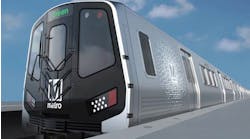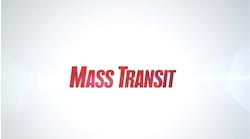CA: Time is running out for BART. Can Bay Area leaders save it?
By Rachel Swan
Source San Francisco Chronicle (TNS)
Time is running out for Bay Area transit agencies — and especially for BART.
After months and months of a noncommittal response to impending financial deficits for various Bay Area transit agencies, the urgency finally seemed clear to a committee of elected officials, urban planners and business leaders who convened Monday at the San Francisco headquarters of the Metropolitan Transportation Commission, marking their latest attempt to stave off a transit death spiral.
Their task: craft a 2026 revenue ballot measure that would shore up bus and rail systems decimated by the pandemic and the subsequent rise of remote work before financial realities cut service or force consolidation.
Six more hours of tense deliberation on Monday did not lead to a concrete solution. Instead, committee members voted to send several possible versions of the measure to the commission for further evaluation.
"All revenue mechanisms discussed at the select committee (sales, tax, payroll tax, and parcel tax including a hybrid measure) should be explored and polled," committee members wrote in their resolution, which listed five bullet points they all could agree on. Among them: The region should drum up funding for "all transit agencies to meet their operating deficits."
Next comes more discussion and voting, first at the MTC and then at the state Legislature, which must pass an "enabling" bill next year for a revenue measure to land on Bay Area ballots in 2026. The timeline is tight, the dissent fervent.
At past meetings, MTC staff have presented possible revenue scenarios that include sales, parcel and payroll taxes in different combinations. Committee members have found fault with all of them, saying that Bay Area voters are burdened with high taxes already, or that voters may not vote for the measure if it's competing against similar tax proposals for, say, housing. But in the same breath, everyone is quick to acknowledge the importance of sustaining transit so people can get to work.
While nearly every agency has suffered from plummeting ridership, the stakes appear highest for BART, which has infrastructure spanning four counties, and has traditionally relied on fares to cover two-thirds of its operating costs. Top BART officials say the system will need a bailout if most employers settle on remote work or maintain a hybrid schedule of three days a week in the office, a trend that appears to be sticking.
Without significant supplemental funding, BART projects a funding gap of $300 million to $400 million a year, starting in fiscal year 2026. Its consultants presage a dismal future in which trains run once an hour, service stops at 9 p.m. on weekdays and several stations shut down.
Whether commuters are willing to dip in their wallets to keep BART and other transit systems afloat is an open question. Jim Wunderman, a member of the revenue measure committee who is also president of the Bay Area Council business association, wrote in a letter to MTC that voters and businesses "are not interested in funding the status quo" for public transit. He called on agencies to deliver "a much safer, cleaner, more comfortable transit rider experience" before heading to the ballot.
BART's polling of its customers in recent years yielded similar responses. A recent three-county survey by the agency showed tepid support for sales and parcel taxes, neither of which came close to the two-thirds threshold needed to pass.
Committee chair Jim Spering called the poll a "sobering reminder" of the challenges that lie ahead. Other committee members wore stone-faced expressions. Critics who lined up to comment — including members of the carpenters and engineers unions — voiced objections to every option on the table.
"It's not there yet, it's not baked," San Mateo County Supervisor David Canepa said of the committee's draft language, which did not specify whether all Bay Area counties would participate in the measure, what kind of tax would be imposed or when it would expire.
Any plan that local officials produce would require state legislation to put it on the ballot — another potential obstacle. State Sens. Scott Wiener, D- San Francisco, and Aisha Wahab, D- Fremont, sponsored such a bill in Sacramento earlier this year but abandoned it in May after encountering stiff political opposition. MTC subsequently formed the committee to attempt diplomacy among diverse counties and transit operators, who so far have struggled to build consensus.
During Monday's discussion, Spering's frustration was palpable. He pointed to all the ramifications for congestion, air pollution and the economy if people lose access to public transit.
If policymakers can't solve this crisis, he said, "there's going to be one hell of a fallout in the region."
___
(c)2024 the San Francisco Chronicle
Visit the San Francisco Chronicle at www.sfchronicle.com
Distributed by Tribune Content Agency, LLC.


